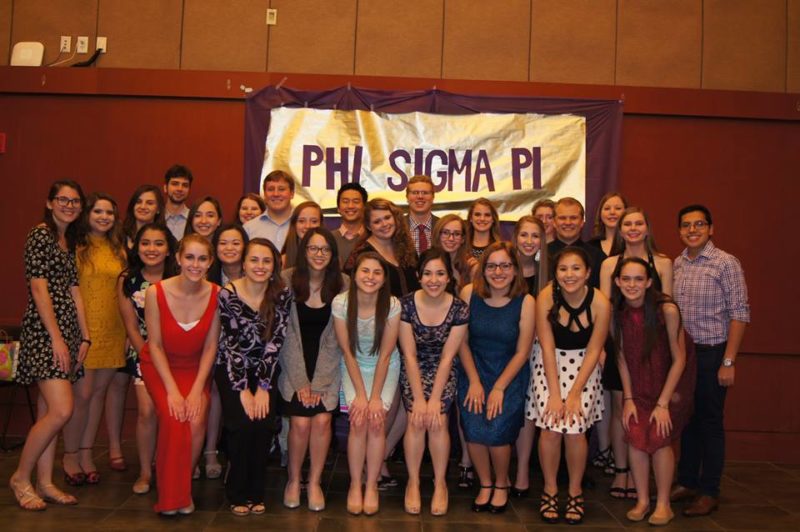The presidents of three scholastic organizations discuss the benefits of joining academic clubs
Among the various clubs and organizations on campus, several groups dedicated to achieving and celebrating academic success are available for students to join. Victoria Ramos, a junior psychology major, is the current president of Phi Sigma Pi, the national honor fraternity on campus, and has loved it ever since she joined as a first year.
“It’s important to get involved socially on campus. You don’t want to have your resume only show the classes you took, because it’s good to be well-rounded. Phi Sigma Pi does a lot of the things that look good all in one place,” Ramos said.
Though membership in honor society is based on academic requirements, the groups are also involved in the community and are very active off campus as well.
“We work with the Ronald McDonald House and send cards to places like nursing homes and local hospitals,” Ramos said. “We actually just adopted a park which is a big deal for us because this was a year in the making.”
Ramos also enjoys the opportunities to enjoy the nonacademic benefits of Phi Sigma Pi, such as bonding at meetings.
“One of my favorite things that we do together is a roast at the end of every meeting, which is when we write a compliment about another member on a note card. It’s anonymous, and at the end of the meeting we all read them out loud, which helps bring everyone together,” said Ramos.
Lindsay Hagmann, a junior accounting major, has also enjoyed her experience serving in her honor society Omicron Delta Kappa, which focuses on leadership. This organization is faculty, staff, administration and alumni, giving students a large network of people to connect with.
“As president, I take part in organizing leadership events for our members to take part in. I encourage students to support members at events whenever possible. By supporting other members, we encourage others to be leaders as well,” Hagmann said.
If you are a first-year that had a GPA of a 3.5 or higher in the first semester, then you probably received an invitation to join Alpha Lambda Delta, which is an honor society that Grace Lee, a sophomore biochemistry and molecular biology major, serves as the president of.
“Being in Alpha Lambda Delta has been a great experience. We have bi-weekly meetings for officers and socials that are meant to be meetings for all the members to get together. We mostly just eat food and hang out, so it’s a great way to meet new people,” Lee said.
Between balancing a heavy workload and maintaining activeness in a club, among other responsibilities, time commitment may be a concern for those interested in joining. Lee has noticed, however, that Alpha Lambda Delta members are never too overwhelmed by their various commitments, including the club.
“Alpha Lambda Delta is as much or as little work as you want it to be. You can be super involved and be the president if you want, or you can just come to socials when you want. It’s really what you make of it,” Lee said.
All three presidents found that honor societies can help students find a group of people who share the same passion about academic work and social life.
“The big thing is that you have a lot of friends who are very like-minded. I feel like I’m surrounding myself with people who have the same ideas and morals,” said Ramos. “It gives you a place to go to events and have something fun to do. Being president also gives me something to put on my resume, which is an added bonus.”
Whether you are interested in an honor society because you’re trying to get involved, you’re interested in leadership or you just want to find a group of friends to hang out with, there is a scholastic organization
“I think that joining an honor society is definitely a valuable opportunity, and it absolutely allows someone to expand their network. I would definitely encourage anyone to accept the opportunity when it comes along,” Hagmann said.







